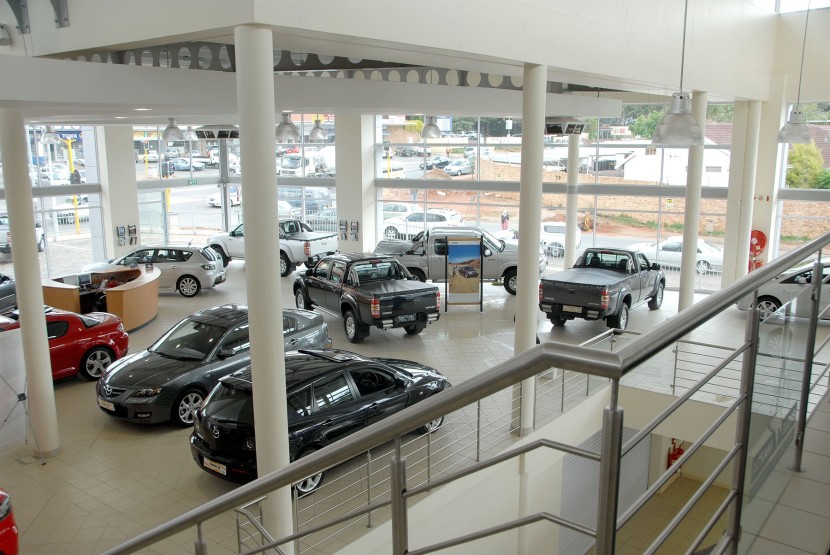Vehicle sales are down 8.2% for the overall market this month. The ‘sick’ economy, as our president pointed out, is clearly taking its toll on the wallets of both consumers and business alike. Throw into the mix a weak Rand and potential interest rate hikes and the results are quite shocking. In fact WesBank’s Rudolf Mahoney believes South Africa might technically be in recession. – Miles Downard
https://api.soundcloud.com/tracks/222163722
 Thanks very much for joining me today Rudolf. How are the vehicle sales numbers looking for August?
Thanks very much for joining me today Rudolf. How are the vehicle sales numbers looking for August?
Not good at all. The numbers are down by 8.2 percent for the total market. Passenger vehicles and commercial vehicles are both down by 7.8 percent and then the heavier commercial vehicles are all down by double digits, and so it’s definitely not a good month. One of the biggest factors driving the decline is consumer sentiment and affordability as well as business sentiment, which is currently at record lows – looking at the RMB and FNB confidence indicators. They’re definitely not in a good situation. Just looking at the last couple of months of vehicle sales: this month, it was down by 8.2 percent. Last month, it was down by 6.1 percent. The month before that – 4.8 percent.
An accelerating downward trend.
Exactly. They do say that vehicle sales is a leading indicator for the economy so if we look closely at this trend, we could have predicted the decline in GDP for the last quarter.
Obviously, if this trend continues, I think we can easily say that we are technically, in a recession and that the GDP is most likely to be in the negative territories for the next quarter as well, when the figures come out. We’re holding our breath for September’s vehicle sales. Of course, we are in Day 1. What is also worth mentioning is last month had two less working days, which has an impact on the sales numbers. The way the month falls, has an impact. Last month, I think, it started on Saturday (the 1st) and it ended over a weekend as well, with the 29th and 30th being on a Saturday and a Sunday. That would have cost a month a couple of units of sales. In September, it starts looking a little bit better. Today is Tuesday, so we’re starting off on a good base and then the month finishes off on the 30th, which is also on a Wednesday so the salespeople can have a good push during the last couple of days to clear some sales.
Looking at the commercial vehicles: when we speak to our corporate customers, the feedback we’re getting from them is that they’re sitting on cash and the companies are doing reasonably well but the appetite for investment and capital expenditure is not there. They’d rather hold onto their cash and spend more maintaining assets than replacing assets or expanding them (buying more assets). I don’t think that situation is going to clear up any time soon.
From the consumer perspective, household debt levels are very high and obviously, the rising interest rates places more stress on the households’ disposable income. If we look at our applications and the reasons why we are declining applications; it’s mainly because of over indebtedness. The customers are maxed out and have adverse listings as well.
Blacklisted.
Yes. I don’t like using the word ‘blacklisted’. I’d rather use ‘adverse listings’. It clearly shows that the consumer is under pressure and given that the economy is also shrinking, I think we’re in for a very bumpy ride.
Yes. How much of an impact does the worsening exchange rate have in the short-to-medium term?
Yes, it has had a significant impact over the past 18 months or so. If you look in the inflation on new cars, it has been higher than the headline CPI for the past 18 months, so 75 percent of the cars that we sell locally are imported and therefore, subject to currency risk.
The continued worsening of the Rand will obviously place pressure on the manufacturers to increase prices, just to remain competitive in the market. It will have a ‘double whammy’ effect on the market when prices to up and interest rates go up as well.
Yes, the consumer really takes a hammering in this sort of environment.
Hopefully, oil tanks to $5.00/barrel to bring some relief.
Yes, hopefully, relief in the petrol price. From an exports point of view, how are we looking there?
That would be probably be the one positive. Exports are up by 12.3 percent, probably exploiting the weak Rand as well. I think the APDP plan, which the government put in place last year or the year before, is paying dividends. We would have seen these dividends much sooner if only we didn’t have the prolonged industrial action last year, in the market.
It’s definitely showing that that’s working well. From a year-to-date perspective, exports are up by 37 percent. The OM’s who do have manufacturing plants in South Africa are definitely reaping the benefits. That’s probably why VW have considered another 4.5-billion of investment in the economy.
Exactly. I assume that it has the reverse effect with the exchange rate. They (manufacturers who export) benefit from a weaker Rand so increasing exports is a good thing in that regard.
Yes, especially if the local market is not doing as well, then at least you have a hedge to remain profitable and productive.
Rudolf, thanks very much for all your time and all the details. I’ll chat with you next time.


